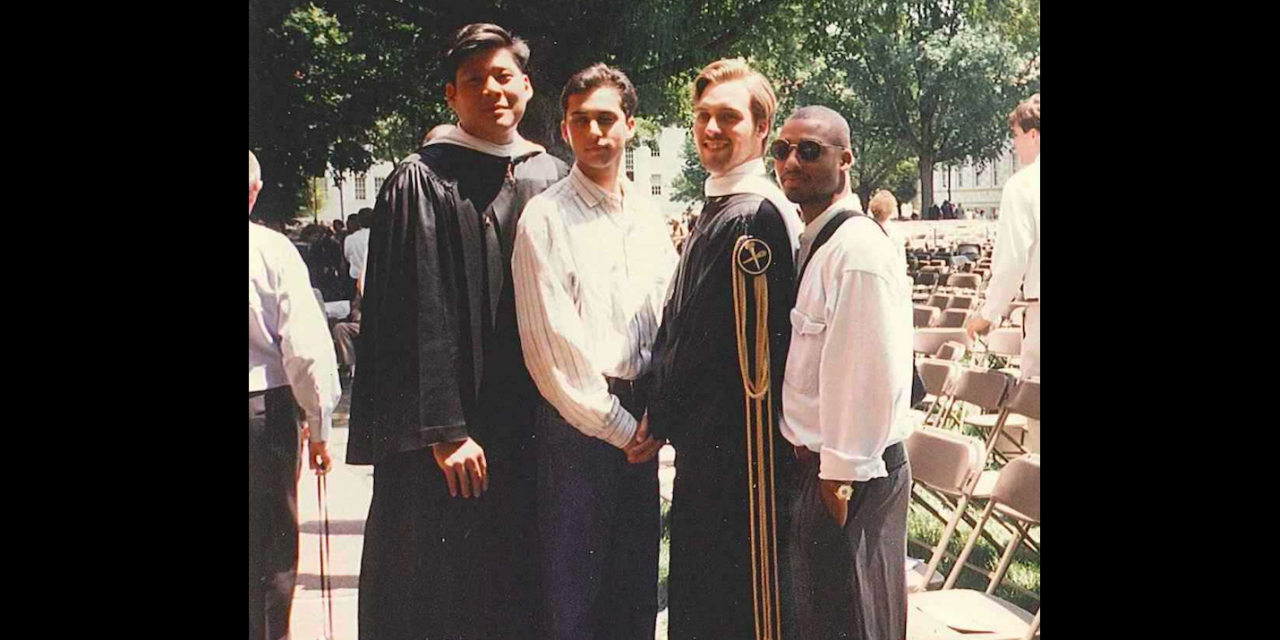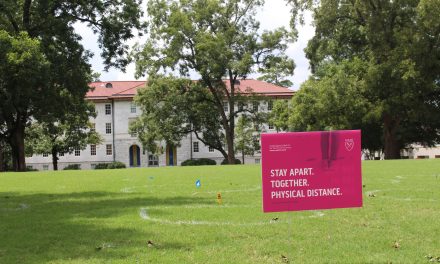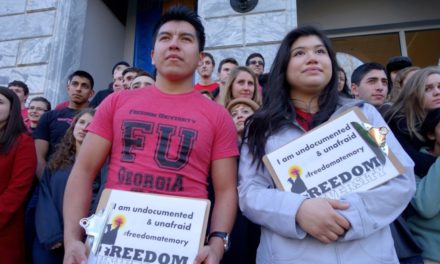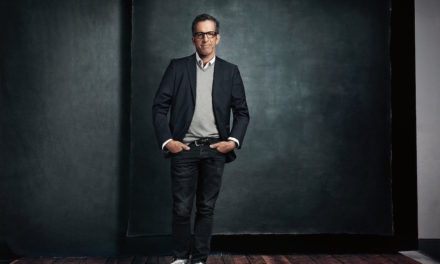
Doug Shipman (95C) is the newly-elected Atlanta City Council President. (courtesy Doug Shipman)
As the newly-elected Atlanta City Council President, Doug Shipman (95C) said he is positioned to meld Atlanta’s past and present to usher in an era of rebuilding, refurbishing, affordability and inclusivity at a pivotal moment in the city’s history.
Shipman, who was elected in November and will wrap up his first month in office on Feb. 3, is determined to change the trajectory of the way Atlanta is growing.
“We will continue to grow, but I think without a real change of approach, we will continue to grow in a way that leaves a bunch of people out,” Shipman told the Wheel in a Jan. 28 interview.
A former Emory student, Shipman credits Emory for sparking his passion for positive change and putting him on the course that led him to his current leadership role in Atlanta.
Shipman’s commitment to ensuring equity across economic and racial divides has defined his post-Emory career. He has served as CEO of the National Center for Civil and Human Rights, the Woodruff Arts Center and BrightHouse Consulting and been a board member for The Carter Presidential Center and the Anti-Defamation League, among other organizations.
The Wheel sat down with Shipman to discuss the Emory experiences and beyond that paved his path as well as his plans and vision for his term ahead.
Responses have been lightly edited for clarity and length.
Emory Wheel: What was it like being a preacher’s child and did that have any influence on your involvement in civil rights?
DS: My mom was a Sunday school teacher, my dad had been a preacher before I was born and I grew up in a small town in Arkansas, so I was always interested in religion. When I got to Emory, I was very interested in the diversity of Atlanta and the civil rights legacy here. I used to go to services at Old Ebenezer and the songs they sang at Ebenezer were the same songs we sang at my church in Arkansas, so immediately, I felt a kinship. Then, while I was at Emory, I studied religion, race and the Constitution, and all these different identity courses; I was really trying to soak up Atlanta! This combination led me to Robert Franklin’s class on Martin Luther King Jr. and Malcolm X as theologians which brought everything together; it had a religious and social movement aspect, and history.
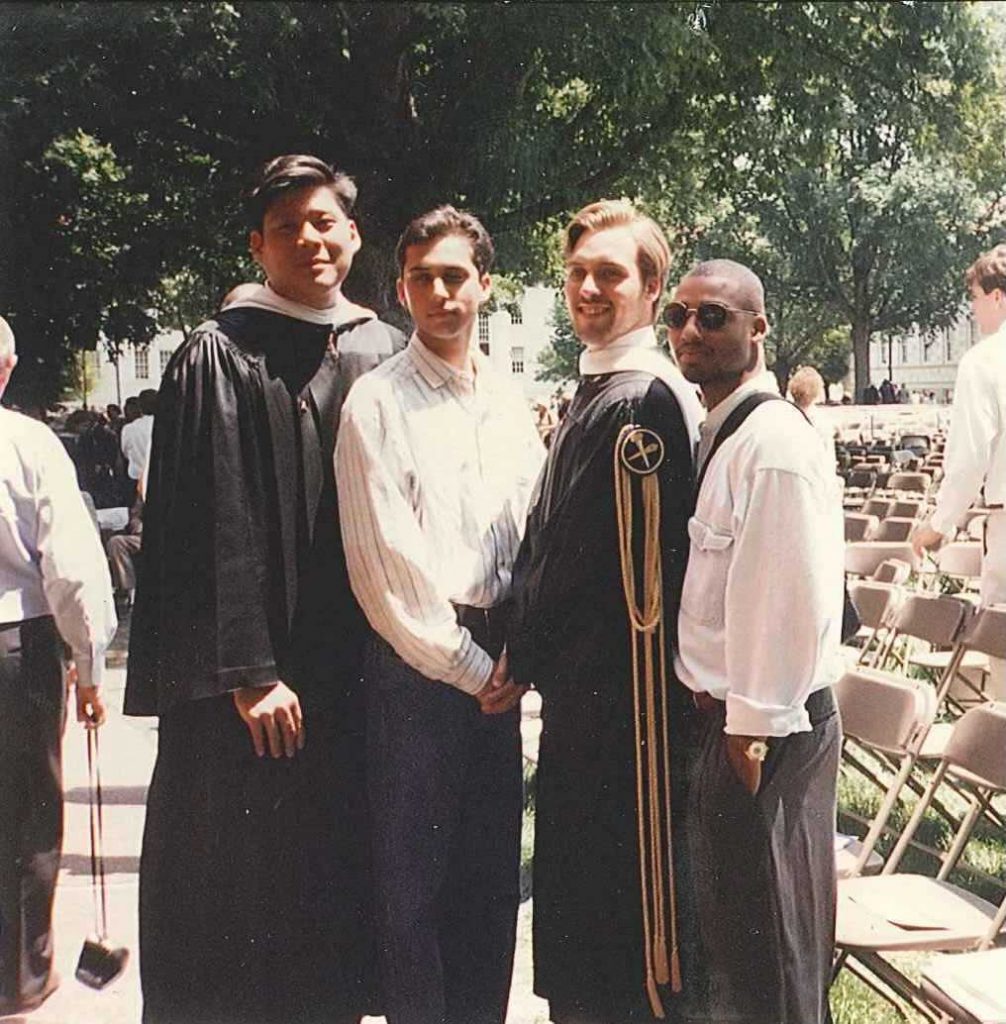
Doug Shipman (95C) (second from right) at his graduation from the Emory College of Arts and Sciences in 1995. (courtesy Doug Shipman)
EW: A substantial part of your career was dedicated to helping develop and lead the National Center for Civil and Human Rights. Can you explain when you decided to shift your focus from the nonprofit world to the political world?
DS: Actually, it’s the reverse! I did my graduate studies in public policy and theology. While at Harvard [for graduate school], I worked on a presidential campaign in New Hampshire. I was a staffer on Capitol Hill for a summer, and I was around public servants, politicians and policies all the time, so I had a lot of experience in the public world.
Then, I went to the private sector for a while. I wasn’t planning on building a museum, but that part just sort of came along. I decided to run for office because I felt like a lot of the ways that Atlanta had grown over the years were under pressure: the lines of race and religion, and the notion of how the business world, the civic world and the political world could work together. I wanted to try to bring my knowledge and experience around history and having worked across all these different communities into the public space.
EW: Did former Council President Felicia Moore pass along any advice before you took office?
DS: Outgoing Council President, Moore, was incredibly generous — we met many times. She had incredible advice, from very tactical things to much broader things. One of the things that Council President Moore did really well, that I want to continue, was bring a lot of transparency. In this day and age, people don’t trust institutions and the government in a lot of ways, so I think it is incumbent on anyone who is in a position of public service and political leadership to push for transparency.
EW: What is your perspective on the Buckhead seccesion and how do you plan to address this growing issue?
DS: I do not think Buckhead City solves Buckhead’s problem. The problems that have been raised in Buckhead are best solved as a whole city, and the problems are the same as the problems I hear all over the city.
People want to feel safe and have good city services and sustainability. Buckhead leaving would have huge financial implications and impacts on bonds not only in Atlanta, but throughout the state. We give up a lot of our unique, national standing [by seceding], and other cities that we compete against for investments will use this against us. A unified city is the best way to address what people are concerned about.
EW: One part of your campaign emphasized Atlanta’s growing issue of affordability. How can you make sure there remains affordable housing in parts of Atlanta where the market is increasing drastically?
DS: Affordability has two aspects. One is to have a robust, anti-displacement policy intact. The other is to develop enough housing overall. We need to be thoughtful about where we are developing affordable units and that we are developing units across the entire price spectrum. Atlanta is very good at knocking things down and building things up, but I want to make sure we aren’t only incentivizing folks to knock things down and build things new because we may have a better affordability strategy if we use more refurbishments.
EW: The Beltline has transformed Atlanta entirely and is especially popular among Emory students. Do you have any future plans for expanding the Beltline?
DS: The funding is now in place to complete the entire loop from a paved perspective. You will see what we see on the Eastside trail become the entire loop in eight to nine years.
The real question is: how do we get transit on the Beltline? Transit was a part of the original vision and was promised in the 2016 tax vote. You have to have transit on the Beltline, otherwise the Beltline doesn’t become a corridor for life, it becomes more of an amenity and “cool” thing. How do we fund transit on the Beltline? There are a lot of infrastructure dollars flowing from the federal government and local money that has already been allocated. I think there is a window here to push to execute transit because that is the piece that we have to get done.
EW: Is there anything else you would like to share about your story?
DS: Emory has continued to be a huge part of my life. My wife was an Emory undergraduate, and this is where I met her. I was the president of the Alumni Board, so I gave back in that way and now I serve on The Carter Center board, appointed by the president of Emory. At the provost’s request, I led as co-chair of the task force on the future of the arts a couple of years ago at Emory. I always feel like Emory was the launching pad for all else that has happened in my life — it will always hold a special place for me.

